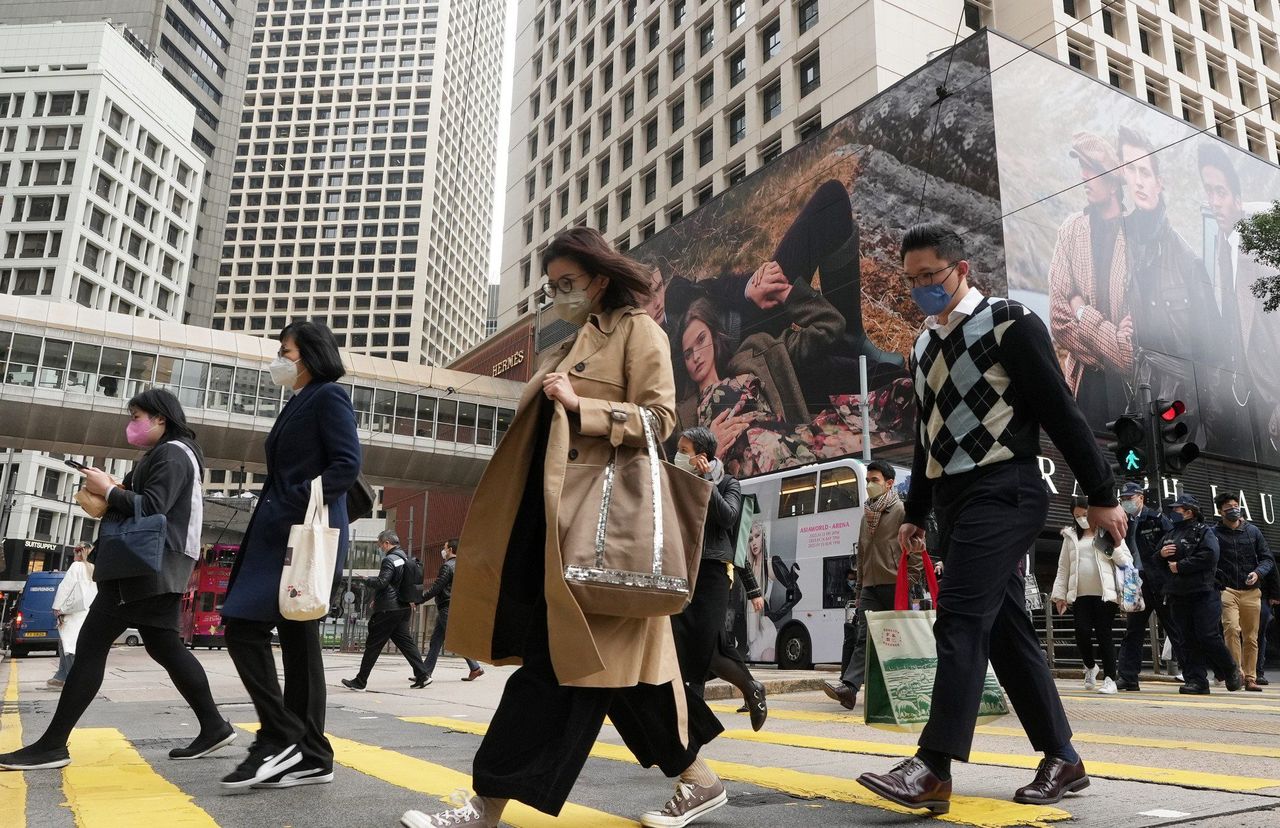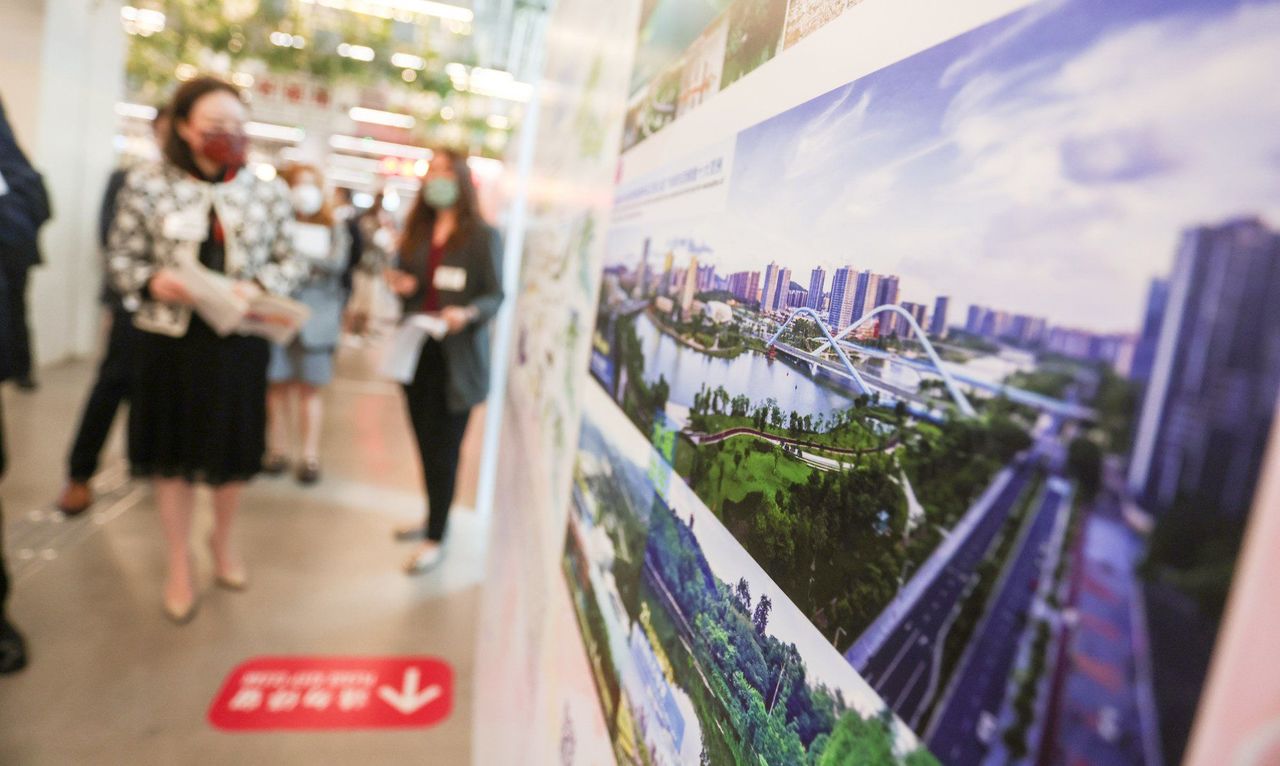Economic setbacks and political uncertainty have dented the city’s confidence, but it remains a world-class hub for business and finance. Now is not the time to shy away from free-market practices or simply accept a supporting role in China’s development.
After enduring three years of zero Covid tolerance in Beijing, I relocated back to Hong Kong in the last week of November 2022. That was during the period of turbulence in the Chinese mainland when university students took to the streets in major cities to protest against Beijing’s excessive restrictions, forcing the central government to reopen suddenly in early December.
The contrast between the two cities could not have been greater. Leaving behind the freezing cold weather and pent-up frustration over zero-Covid restrictions in Beijing, I felt right at home in Hong Kong, thanks to the warm weather, kind welcome of old friends, and feeling of freedom.
As I have observed to friends in Hong Kong, being away from the city for three full years means that all I see are its positives, while they are deeply worried about its negatives.
With the political uncertainty hanging over the city’s future and droves of people departing for good, the foremost worry is that Hong Kong will fade into just another Chinese city.
While the worry is understandable, there are stronger reasons to believe that Hong Kong is merely going through a trough. The city is poised for a sharp rebound following Beijing’s pivot towards reviving the economy.
But before the city gets back on its feet, I believe it must untie three hard knots which threaten to constrict its future development, based upon my extensive talks with political and business contacts over the past two months.
 People return to work in Hong Kong’s Central district after the Lunar New Year weekend, on January 26.
People return to work in Hong Kong’s Central district after the Lunar New Year weekend, on January 26.
The assertion that “patriots only” governance is the essence of the “one country, two systems” principle has given rise to considerable worries in the city and beyond that the socialism of “one country” will take precedence over the capitalism of “two systems”.
Those worries are misplaced. From Beijing’s point of view, political opposition or challenges to the rule of the Communist Party in the city may no longer be tolerated, but there is no political logic or economic incentive in turning Hong Kong into another Chinese city. In fact, China’s leaders have always emphasised that the central government’s determination to implement the one country, two systems principle was “unswerving”.
In essence, so long as there is no open and direct challenge to the rule of the party, Hong Kong may be free to pursue capitalism in whatever way possible. Nowadays, there seems to be hesitancy to even say the word “capitalism” aloud because of concerns of being politically incorrect. Those concerns are totally unnecessary.
In fact, as the city returns to political stability, it should take every opportunity to promote Hong Kong’s capitalist credentials to show both residents and the world that it is back for business. That opportunity is imminent as Hong Kong is to embark on a global publicity campaign.
Second, Hong Kong must proudly lead the development of the Greater Bay Area. Encompassing Guangdong province, Hong Kong and Macau, the Greater Bay Area covers a total area of 56,000 square kilometres with a combined population of almost 87 million. It aims to rival the world’s leading bay areas in San Francisco, New York and Tokyo as a powerhouse for innovation and economic growth.
The ambitious plan should give Hong Kong a new lease of life and a chance to be the “dragon head” of the region. Unfortunately, this once common term is now rarely used and the perception is that Hong Kong is playing a secondary or supplementary role in the scheme.
Hong Kong must do more to counter that perception. Hong Kong’s development may have been stalled because of political wrangling over the past 25 years, while the economy of neighbouring Guangdong has grown by leaps and bounds.
But the city’s unique advantages remain intact and it has much to offer in terms of financial services, innovation and technology, transport and logistics, medical services, and education.
Hong Kong should not sell itself short; it must regain its dragon head status.
 An exhibition for the Hong Kong Institute of Planners’ Greater Bay Area Planning Awards 2022, in Central on November 7, 2022.
An exhibition for the Hong Kong Institute of Planners’ Greater Bay Area Planning Awards 2022, in Central on November 7, 2022.
Third, Hong Kong should resolutely guard against the mainland’s practices of “formalism and bureaucratism”– two issues that China’s top leaders are battling at home.
Because of political developments in the past three years, some political and business elites in the city have consciously or subconsciously started to second-guess what Beijing thinks on issues concerning Hong Kong, or to please Beijing by copying some of its practices.
For instance, some have started to use the mainland’s political jargon, or organise seminars to study remarks by China’s top leaders to show their loyalty, as is the standard practice in the Chinese mainland.
More worryingly, as Beijing tightens political controls over the city, some mainland officials based in Hong Kong have started to put on airs, demanding favours at meetings or Mao-tai liquor over meals.
This is very unsettling. As far as running an efficient and clean government is concerned, Hong Kong has little to learn from mainland bureaucracy. In fact, the opposite is true. Granted, it is important for Hong Kong’s civil servants to learn how the mainland bureaucracy works to ensure smooth cooperation, but they should zealously resist the mainland’s bureaucratic practices.
This is also something on which Beijing should keep a close eye, to ensure its officials based in Hong Kong don’t introduce the practice of formalities for formalities’ sake to pollute the city’s clean and efficient system of governance and ways of life.















